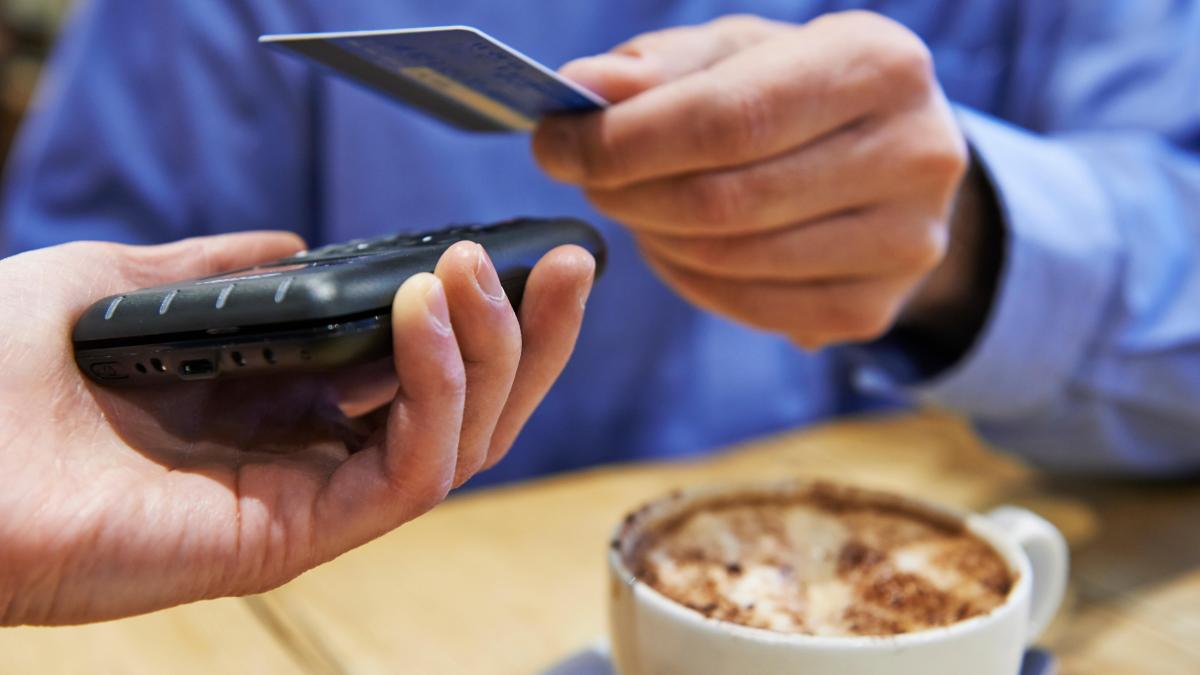No income tax, no VAT, no money back and no guarantee. And in the Peckham of today, no wallet either. Del Boy would be horrified, but Britons are turning their backs on wallets as the use of cash falls.
Fewer than half of people now carry a physical wallet, research published on Wednesday showed. While more than 80 per cent say they still own a wallet or purse, the growing popularity and acceptance of digital wallets, such as Apple Pay or Google Pay, which allow payment via smartphones and watches, means that leaving the house without cash is becoming much easier and more common.
Young people are at the forefront of the trend. Link, the cash machine network that conducted the study, said that digital wallets were the default payment method for Generation Z and millennials. For older adults, debit cards remain king, but the gap is narrowing.
• Should you have a stash of cash in case of emergency?
The findings are part of a report that claims, while digital convenience is seductive, it leaves consumers exposed to system failures. Six in ten people said they had experienced digital payment failures. Many pointed the finger at technology and one in five had abandoned purchases because of them.
Despite this, the study found that more than one in ten adults (11 per cent) habitually leave home with only a digital wallet as a form of payment. This is most common among those aged 35-44 at 29 per cent. High earning Britons are also substantially more likely to use digital wallets than less on low incomes.
Although cash was no longer the default for any age group, more than half of adults said they had used it in the past week. Many cited budgeting, small purchases or shops with card minimums as reasons for keeping coins and notes close to hand. Even so, about 7 per cent of the population — nearly five million people — carry no cash at all, while nearly 16 million have none at home.
The research found that Britons carry an average of only £20 cash in their pocket and keep £10 cash at home. Cash use is highest among the over 65s, with three quarters typically having cash in their pocket when they go out compared to less than half of 18-to-34 year olds.
• Shops could be banned from refusing to take coins and notes
Debit and credit cards overtook cash as the most popular way to pay in 2018 and remain the most frequently used payment method, with 70 per cent of people still typically carrying one.
The report also highlights how dependent consumers have become on single providers. More than half of adults hold all their cards with one payment network, such as Visa or Mastercard, and a significant proportion of digital wallet users have only one card stored on their devices. That leaves many without a back-up if the system falters.

Relying on smartphones for payments leaves customers vulnerable to technological failures, said the report
ALAMY
Adrian Roberts, the deputy chief executive of Link, said: “The old saying ‘cash is king’ may still hold true for some, but today, it’s convenience that wears the crown.
“We’re more digitally reliant than ever but we’re also more exposed to technology outages than ever before. Recent power outages in Portugal and Spain exposed real vulnerabilities, with consumers unable to make simple purchases for necessities, such as food, medicines and fuel.”
In April, the massive power outage that hit Spain and Portugal, paralysed electronic payment systems, leaving consumers and businesses unable to process card or mobile transactions and rendered digital
payments largely unusable.
To reduce risk, the report recommends practical steps, such as maintaining a small cash reserve, using various cards and digital wallets, installing a second banking app and carrying a portable charger.
• The British town where cash is still king
Policymakers face the challenge of preserving access to cash, while strengthening the resilience of digital systems. The Bank of England is leading work on a “national payments vision”, but Link said more would be needed to ensure consumers and retailers were protected.
The wallet may not be consigned to history quite yet, but its role in everyday life is fading. If Del Boy was still working the markets of southeast London, he would soon realise it is not the thickness of your wallet that counts, but whether your phone still has signal.

